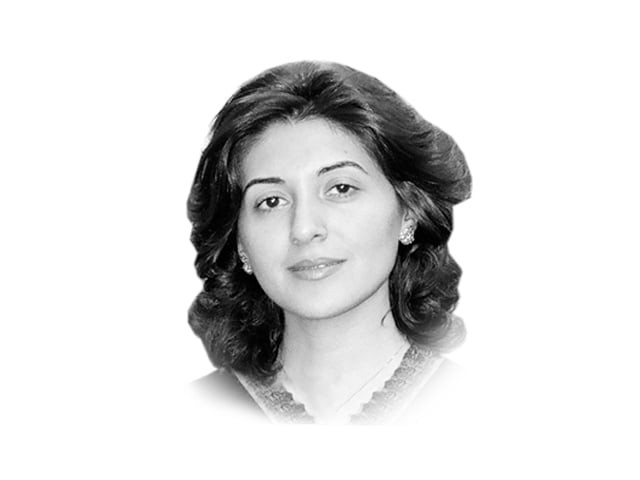Private lives and public figures
Personal life of public figures is often a gauge of integrity, means to determine if he practices what he preaches.

The writer is a London-based lawyer who tweets @ayeshaijazkhan
In Pakistan, I often notice that whenever a public representative’s wife or children are mentioned, there is an outcry of ‘leave that aside, it’s his private life’. It may be private but it’s still relevant to his public office. Let’s take, for instance, the recent call by our Interior Minister Chaudhry Nisar Ali Khan, stating that the drone strike that killed Hakimullah Mehsud was “an attack on regional peace by America” and that as a result, bilateral ties with the US will be reviewed. This is rich coming from a minister whose wife and children are US citizens and who, according to a certain Wikileaks cable, admitted to a US diplomat that he renewed his daughter’s American passport at the US embassy in London to avoid it making news in Pakistan. It is curious that the other anti-drone champion, Imran Khan, who is out to block Nato supply routes, also happens to have chosen a Nato country, the UK, for his children’s future.
Personally, I see nothing wrong with either dual nationality or living abroad. However, it is most hypocritical to partake of the benefits of Western society for one’s own children, while insisting on policy such that others’ children are deprived of those benefits. For as journalist Saleem Safi very aptly suggested, if these leaders are to protest drones, why don’t they do it by burning their US/EU/UK visas and by vowing not to visit those countries till the drones are stopped? Surely, that makes a lot more sense than having vigilantes harass hapless truck drivers who are simply making a living in a rough economy.
In Western democracies, which we often look upon as models, it is generally fair game to question and cross-question public figures on their personal lives, especially if dichotomies exist. The American public is particularly unforgiving of indiscretions in personal lives. The CIA director, David Petraeus, lost his job last year, for example, after admitting to an affair with his biographer. Bill Clinton underwent impeachment proceedings for perjury and obstruction of justice after his affair with Monica Lewinsky came to light. In Britain, too, there are examples of personal lives causing embarrassment to public office holders. Former home secretary David Blunkett resigned after having fast-tracked the visa application of his ex-lover’s nanny. Tony Blair, moreover, had to explain his 16-year-old son’s drunkenness soon after suggesting spot fines for drunk and disorderly behaviour.
The point is that the personal life of a public figure is not a taboo subject but rather often a gauge of his integrity and a means to determine whether he practices what he preaches. The more important the figure, the more interest there is in his/her personal life. Benazir Bhutto, for example, knew that she had to marry a Pakistani and most likely a Sindhi if she wanted to become prime minister. Bilawal, too, will need to be mindful of cultural sensitivities in making his marital choice. Or, of course, there is the example of King Edward of Great Britain, who gave up the throne to marry the woman he loved.
In a democracy, particularly, the press is within its rights to focus on the private lives of public representatives. After all, we are not Saudi Arabia where only once an octogenarian crown prince dies, one reads in the obituary of a Western publication that he married 12 times!
Published in The Express Tribune, December 1st, 2013.
Like Opinion & Editorial on Facebook, follow @ETOpEd on Twitter to receive all updates on all our daily pieces.

















COMMENTS
Comments are moderated and generally will be posted if they are on-topic and not abusive.
For more information, please see our Comments FAQ